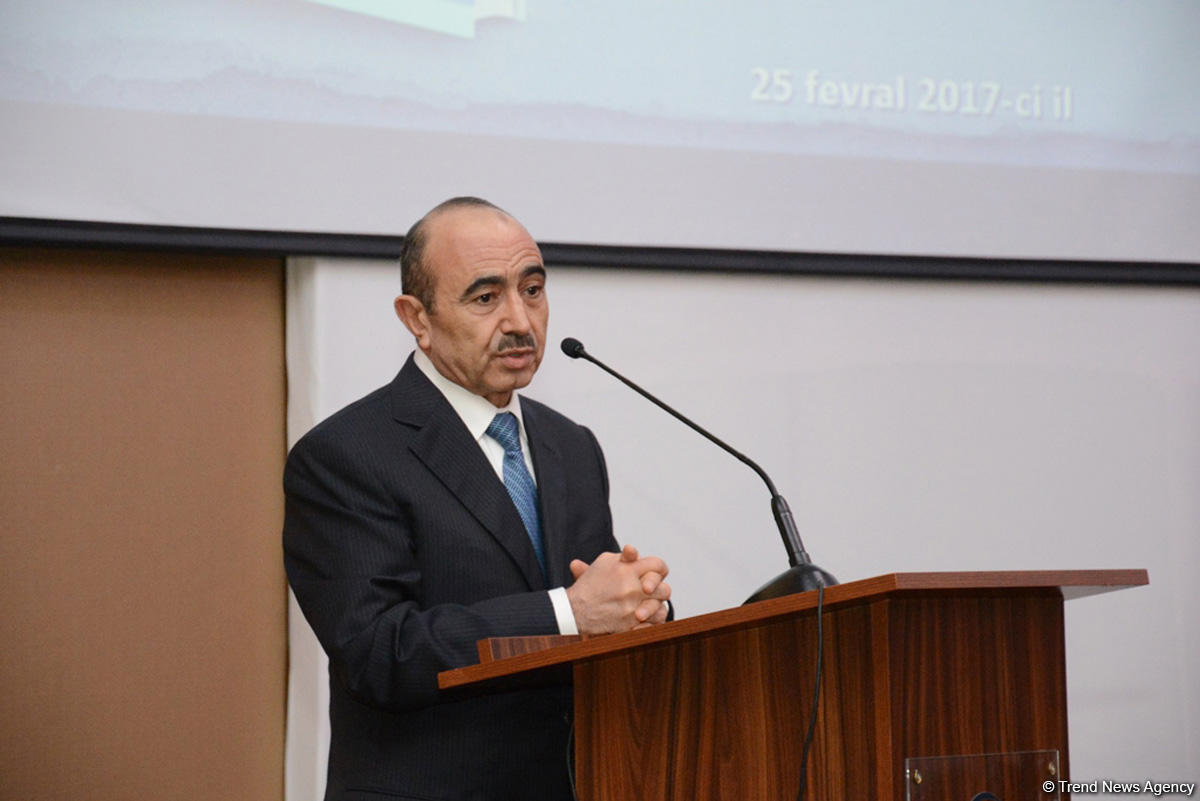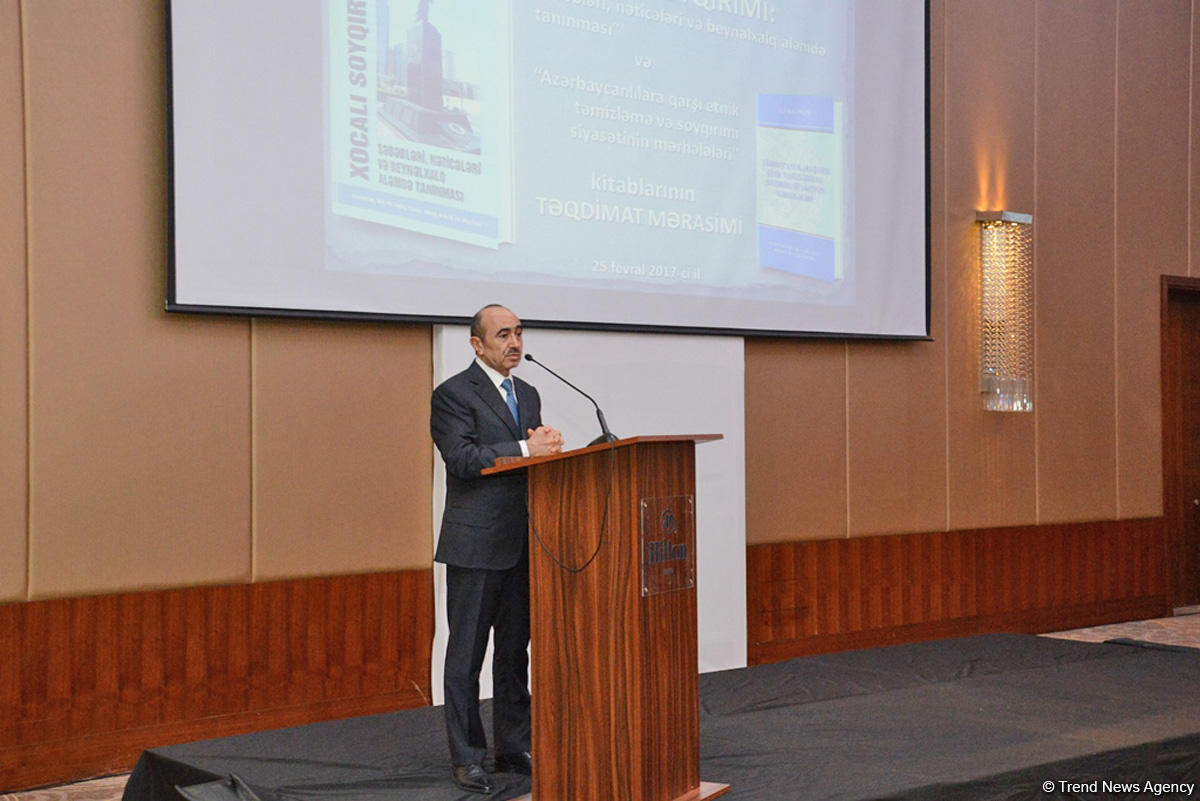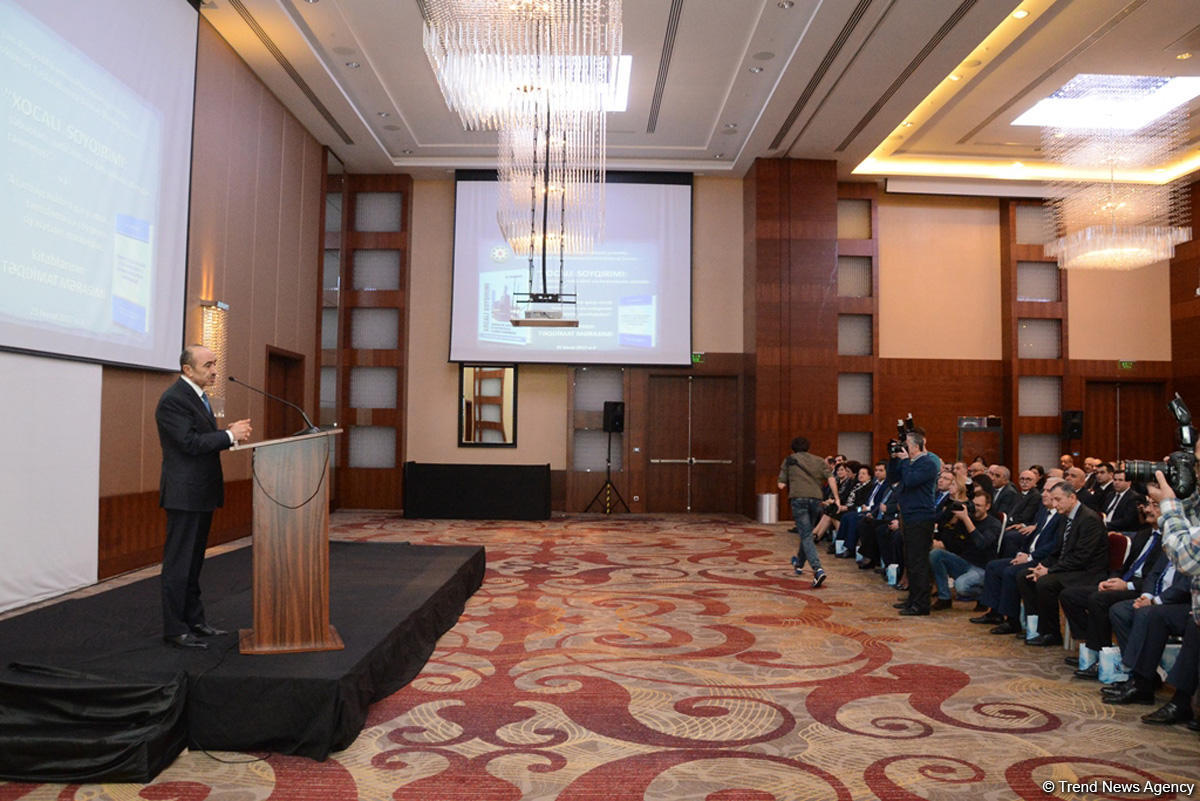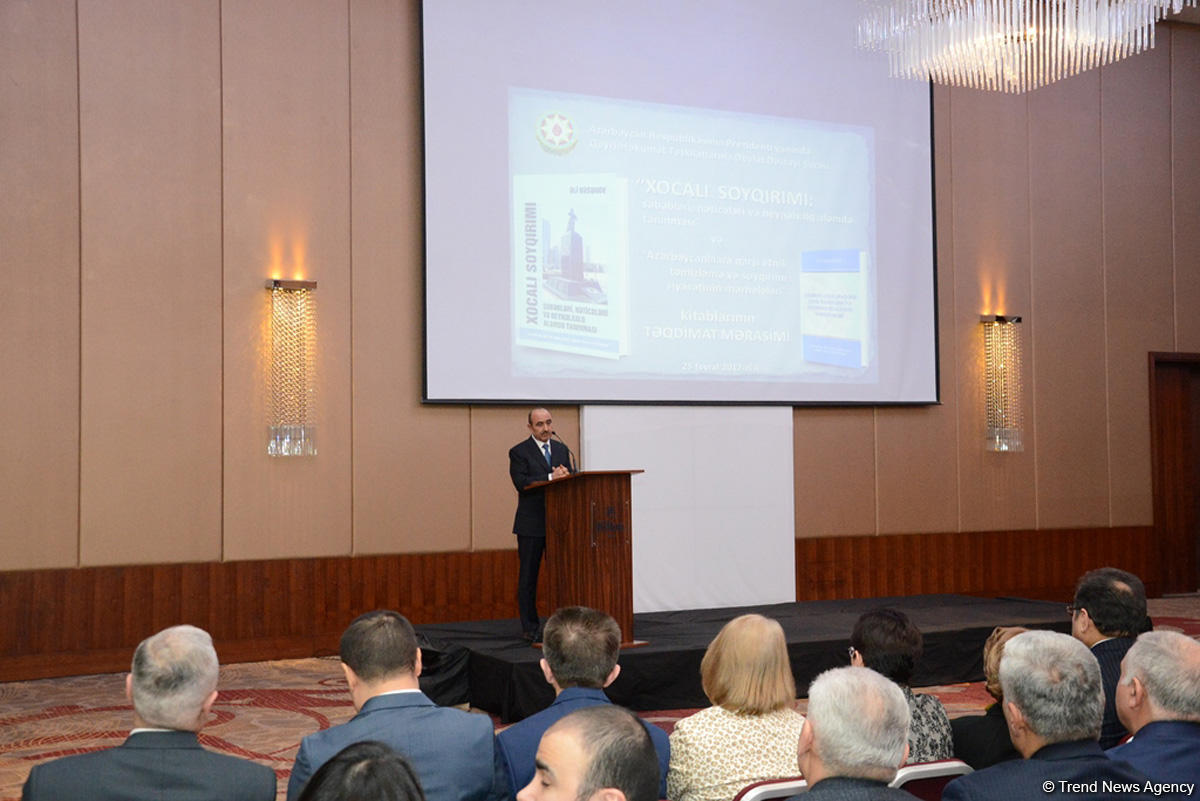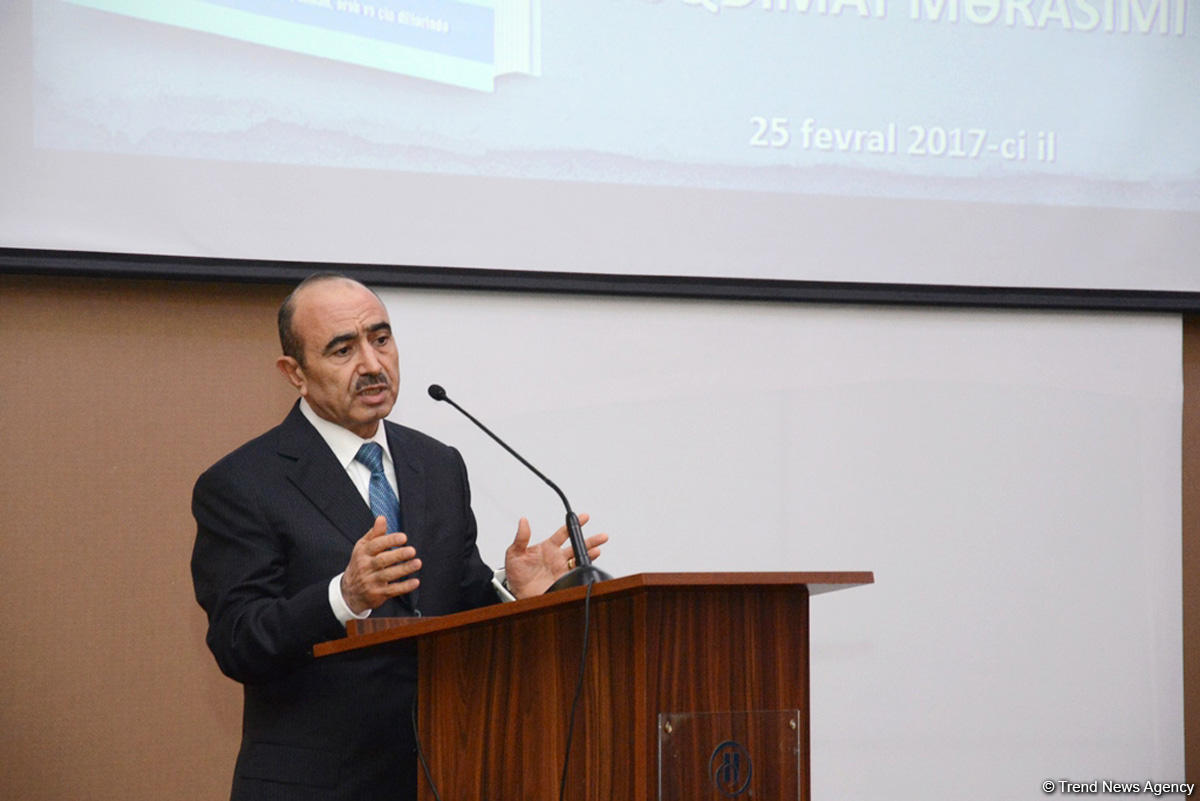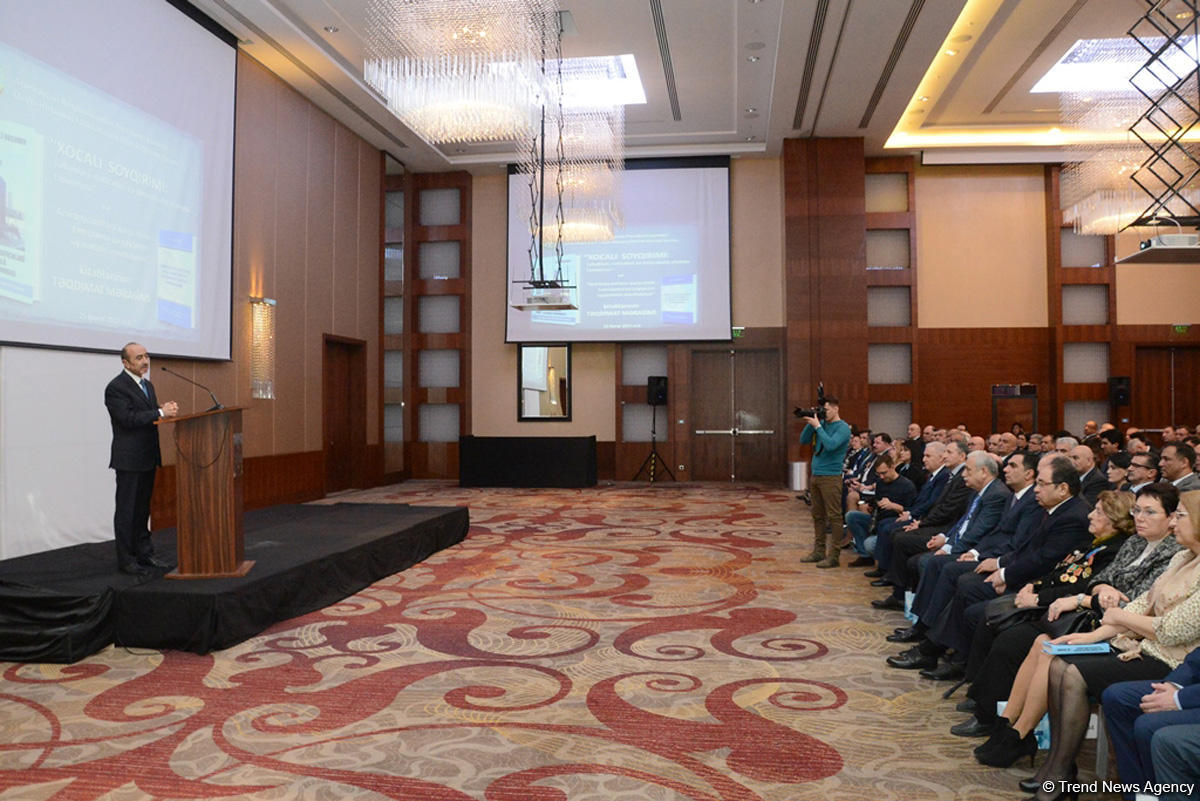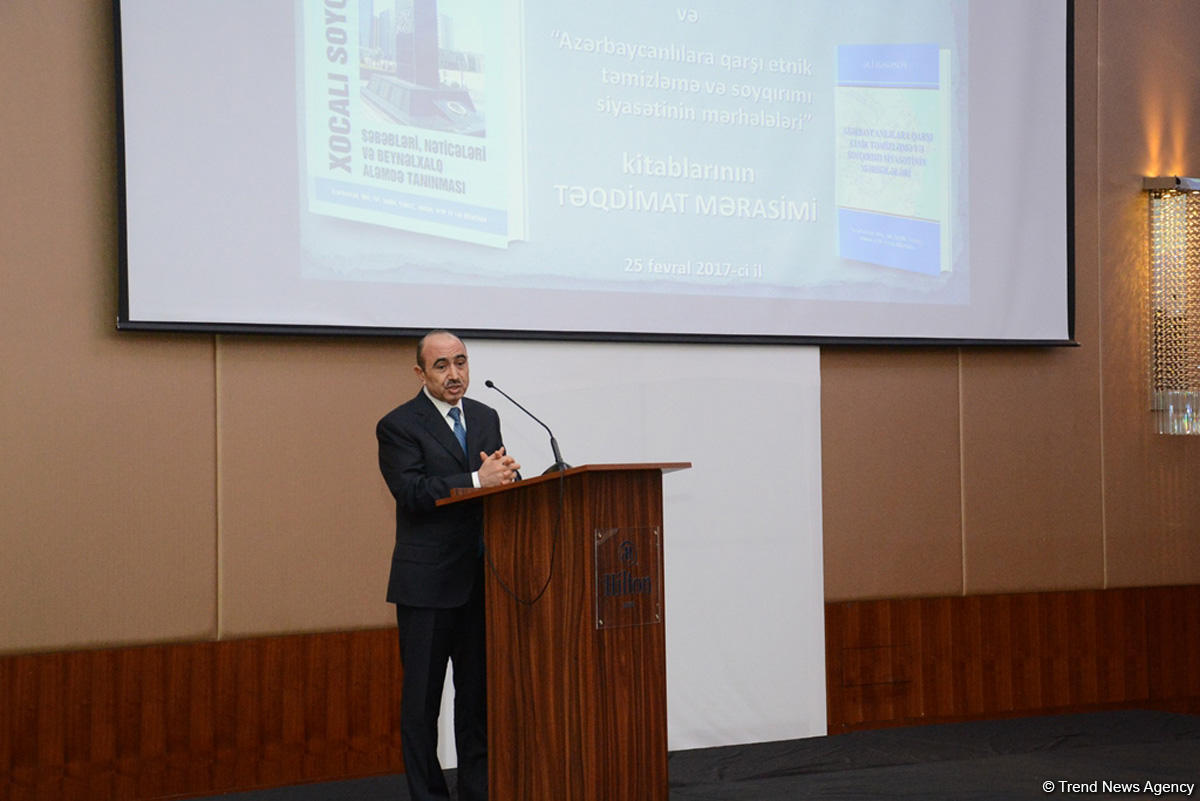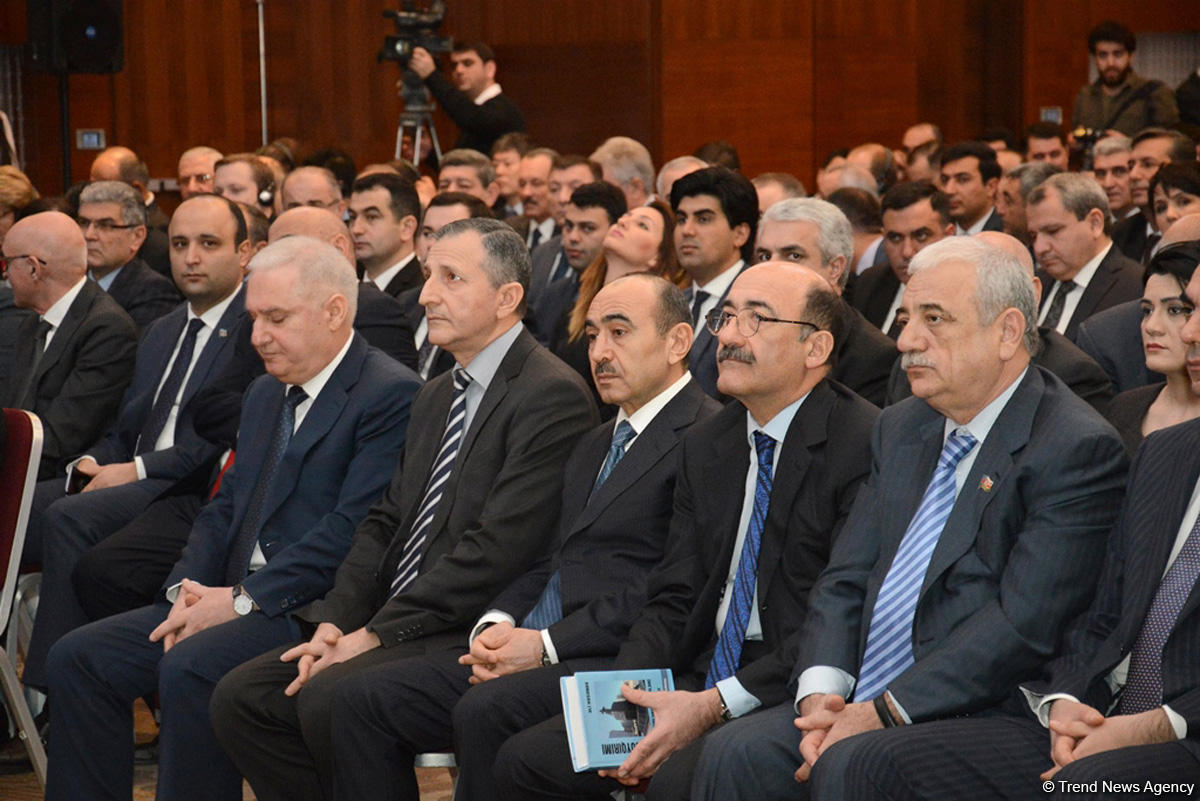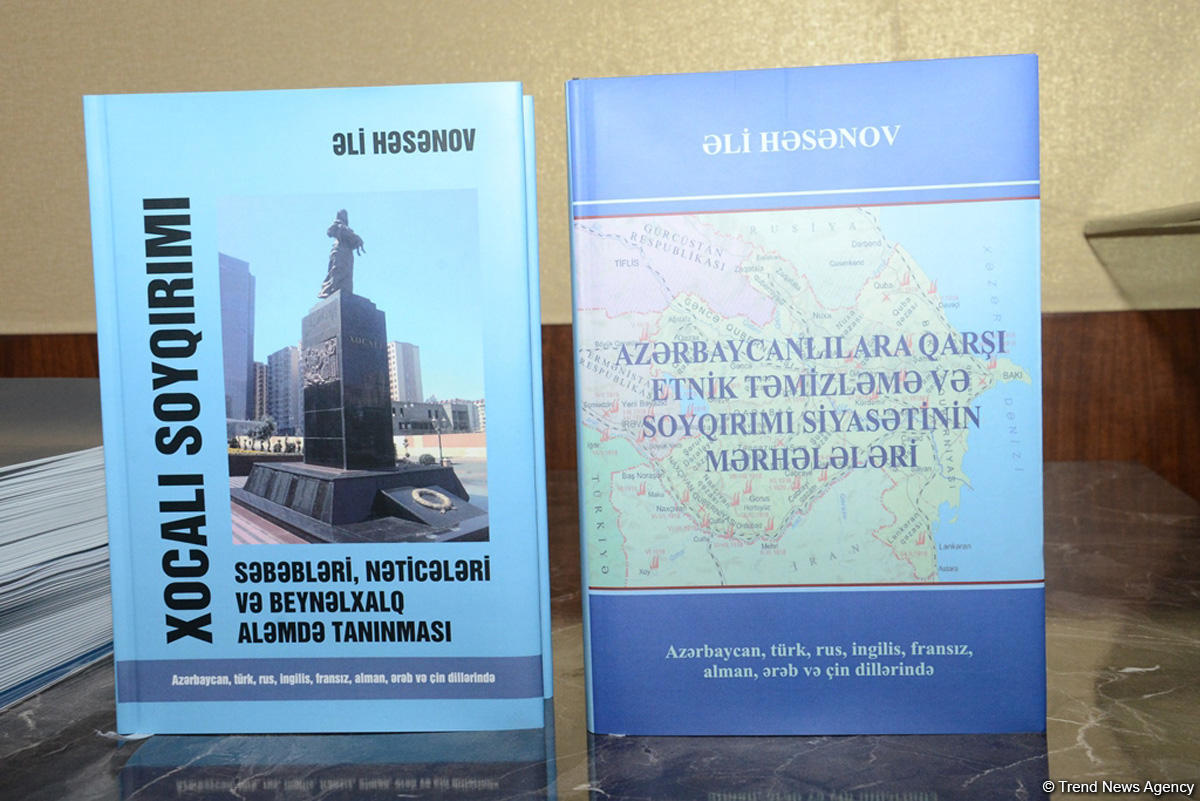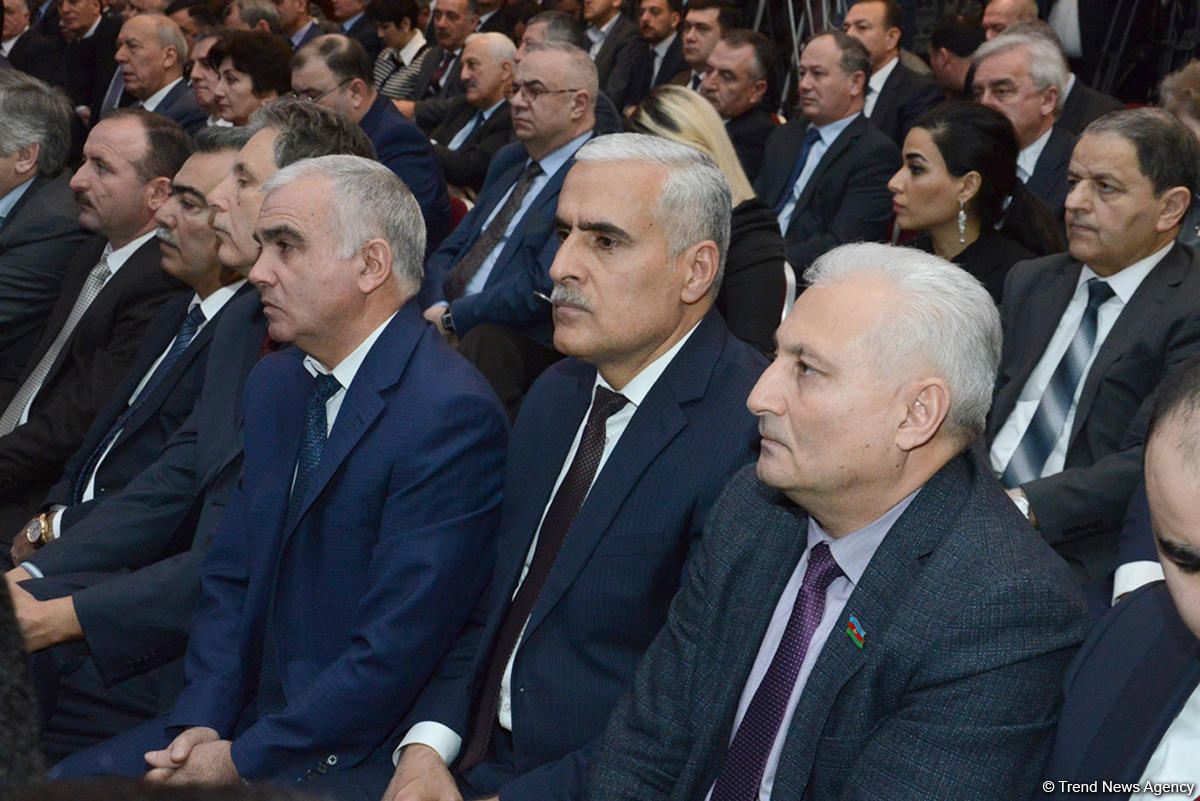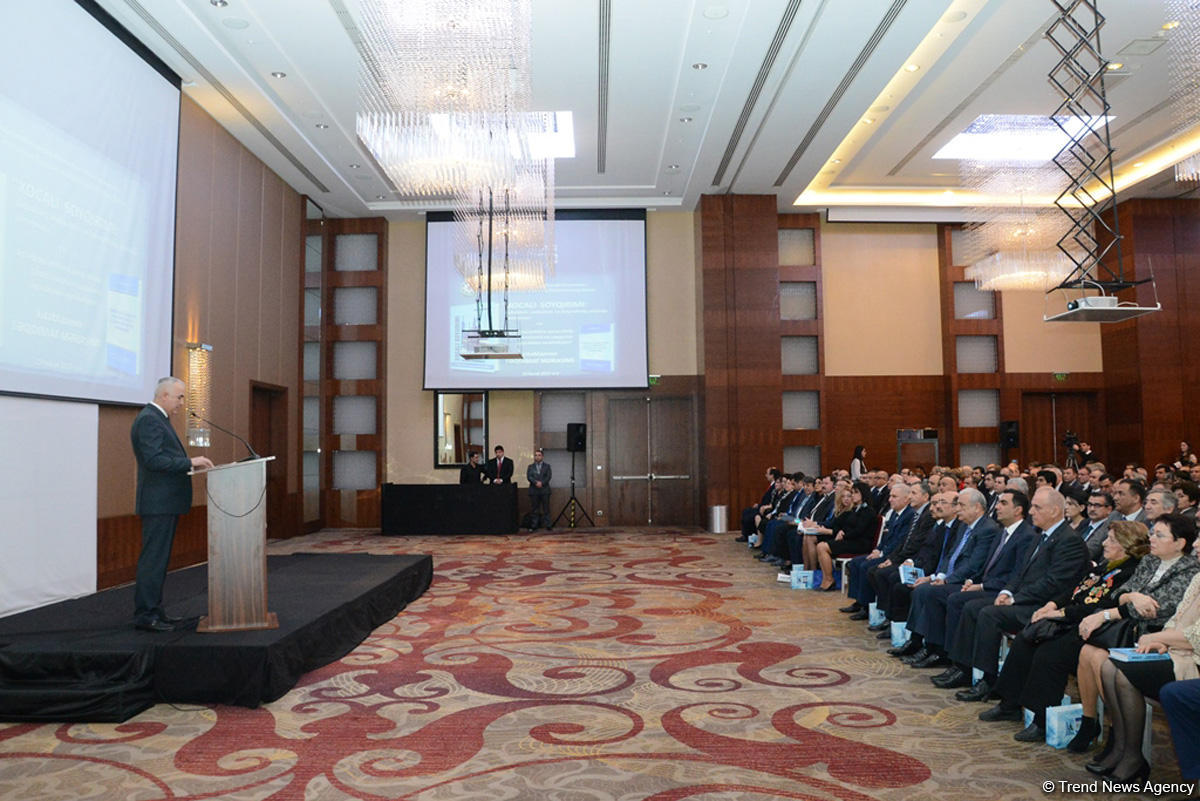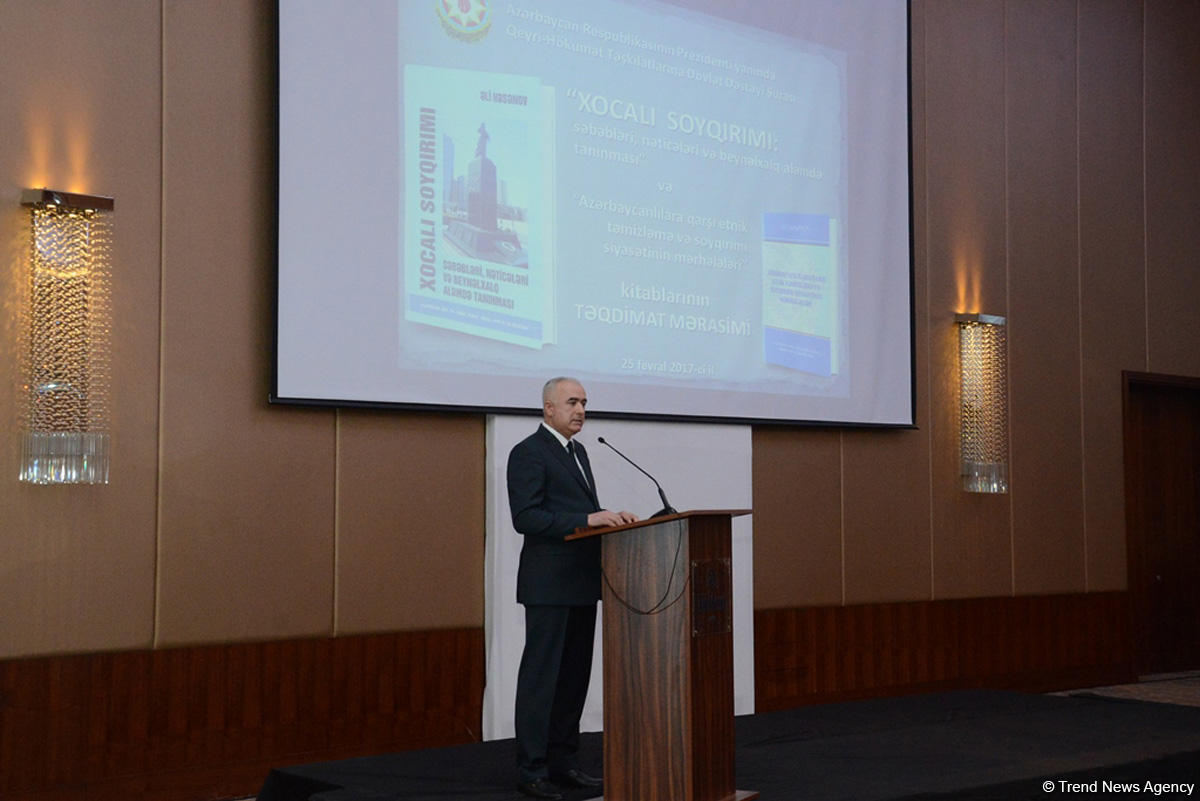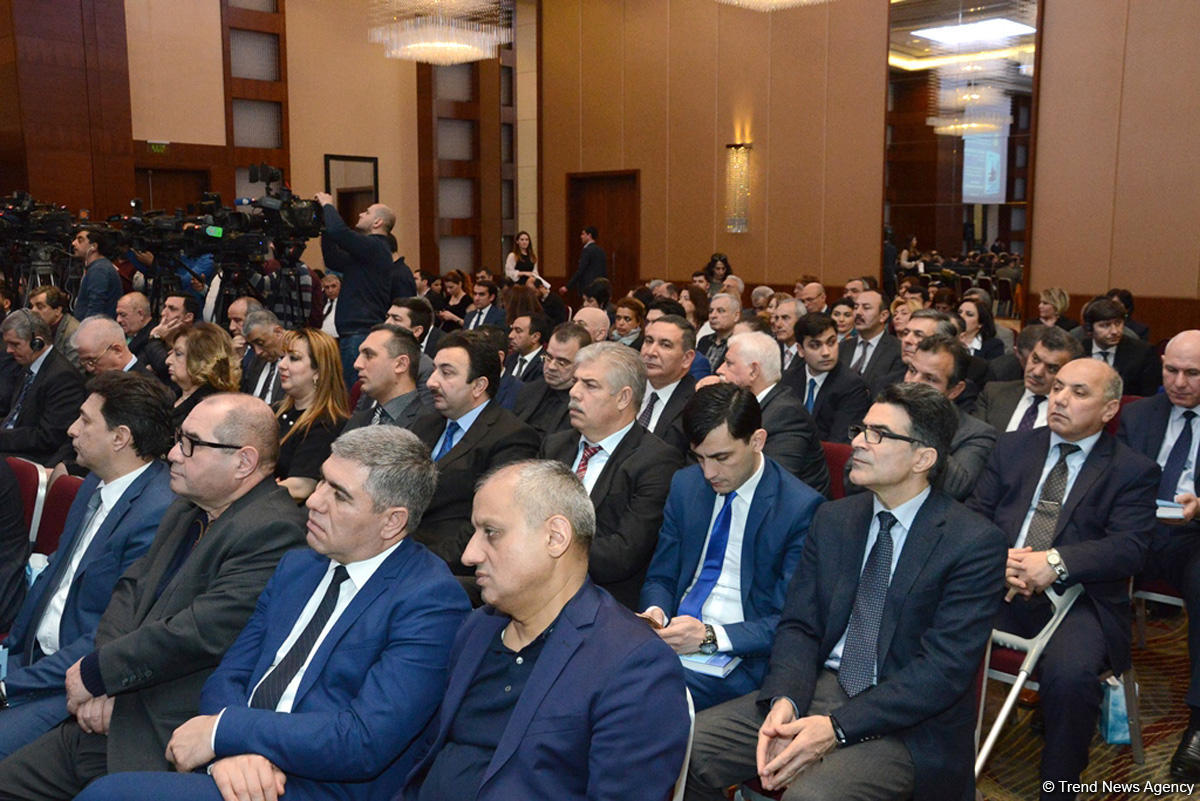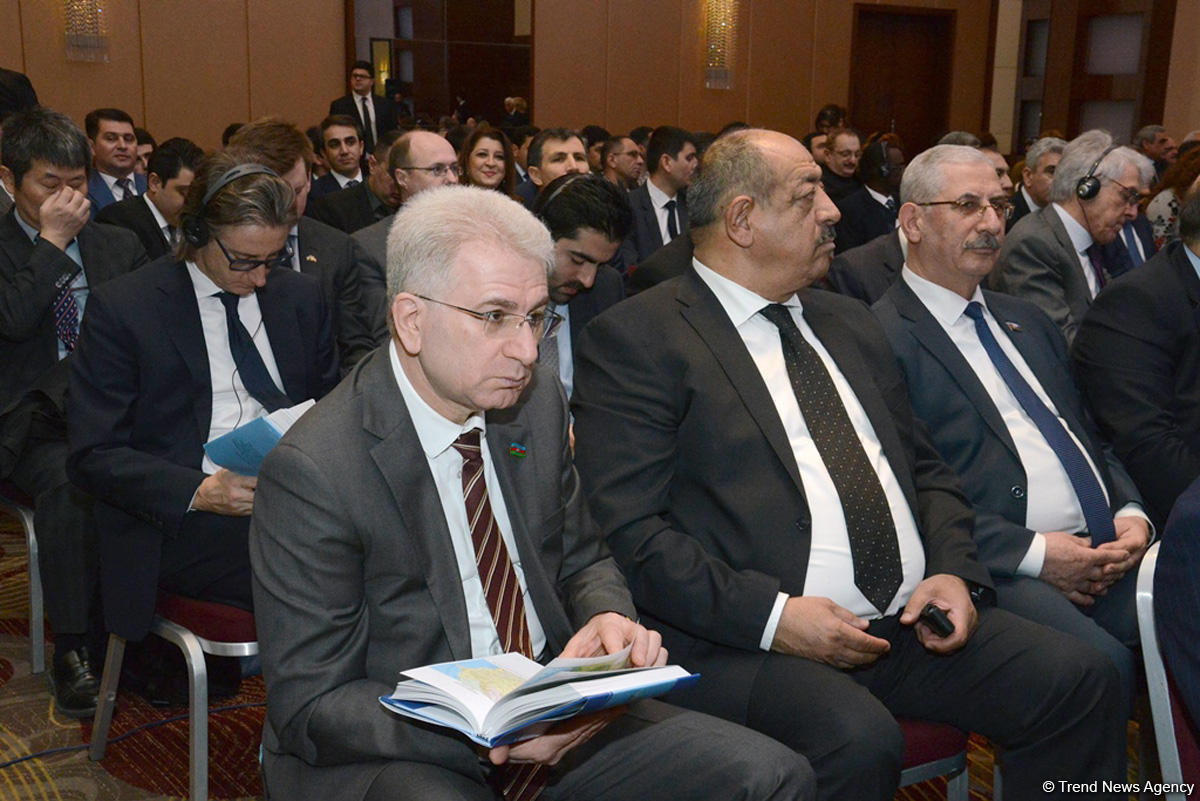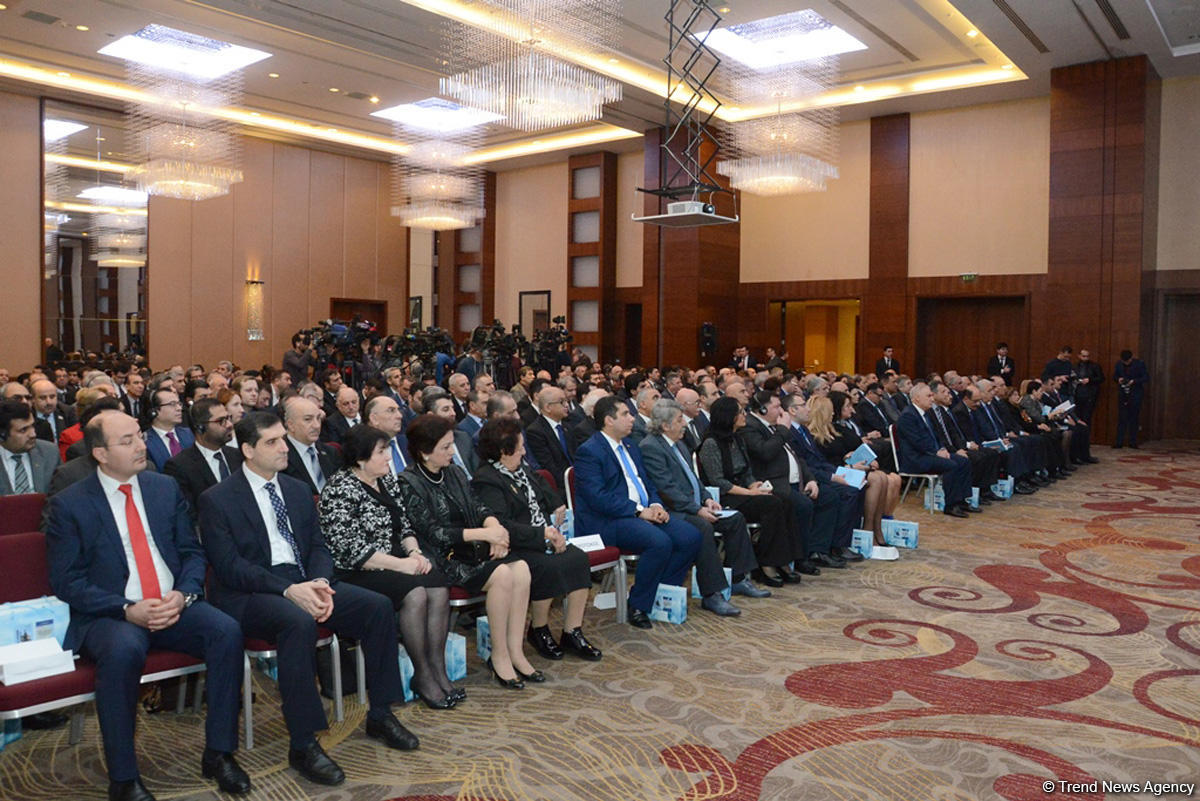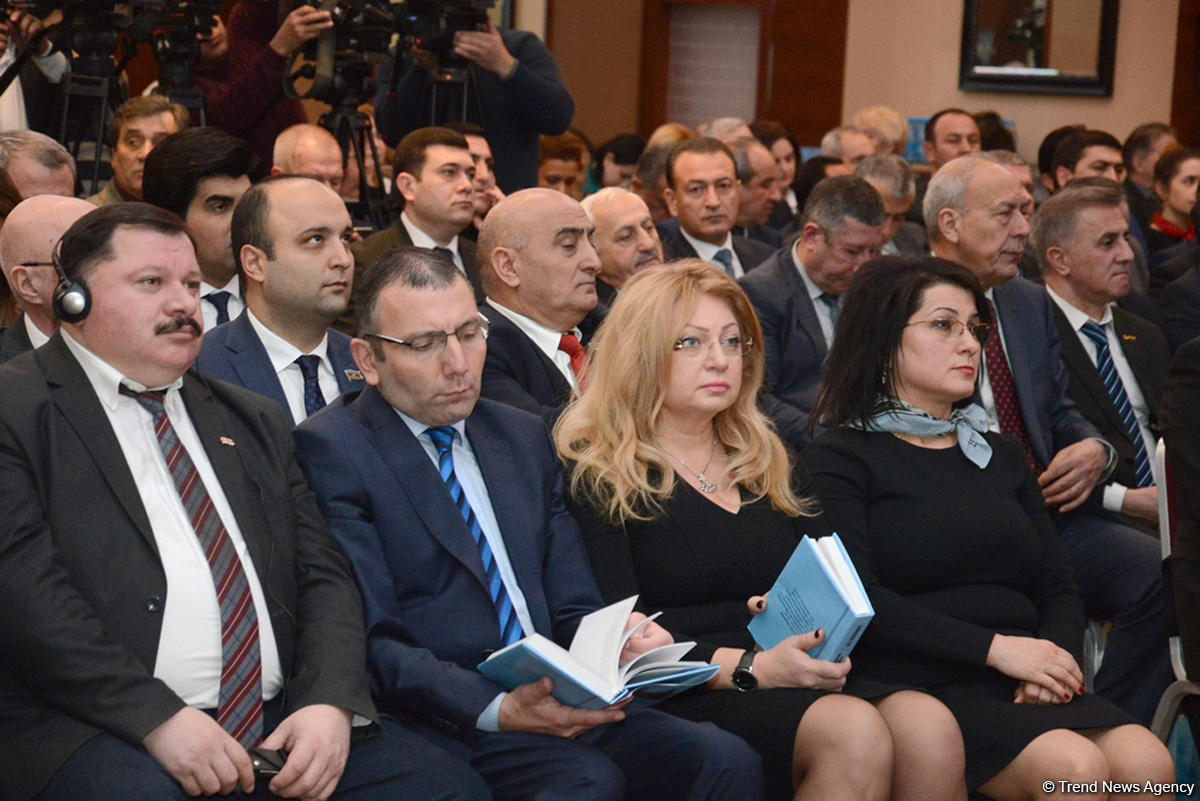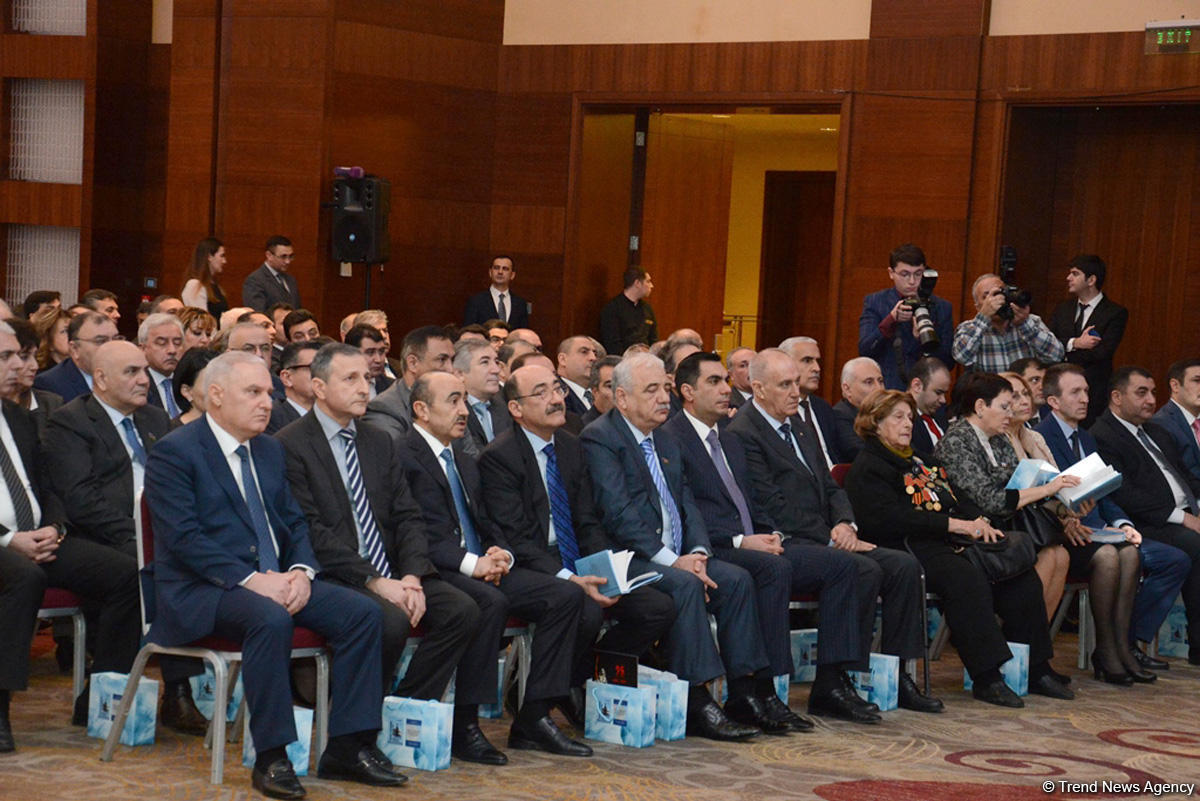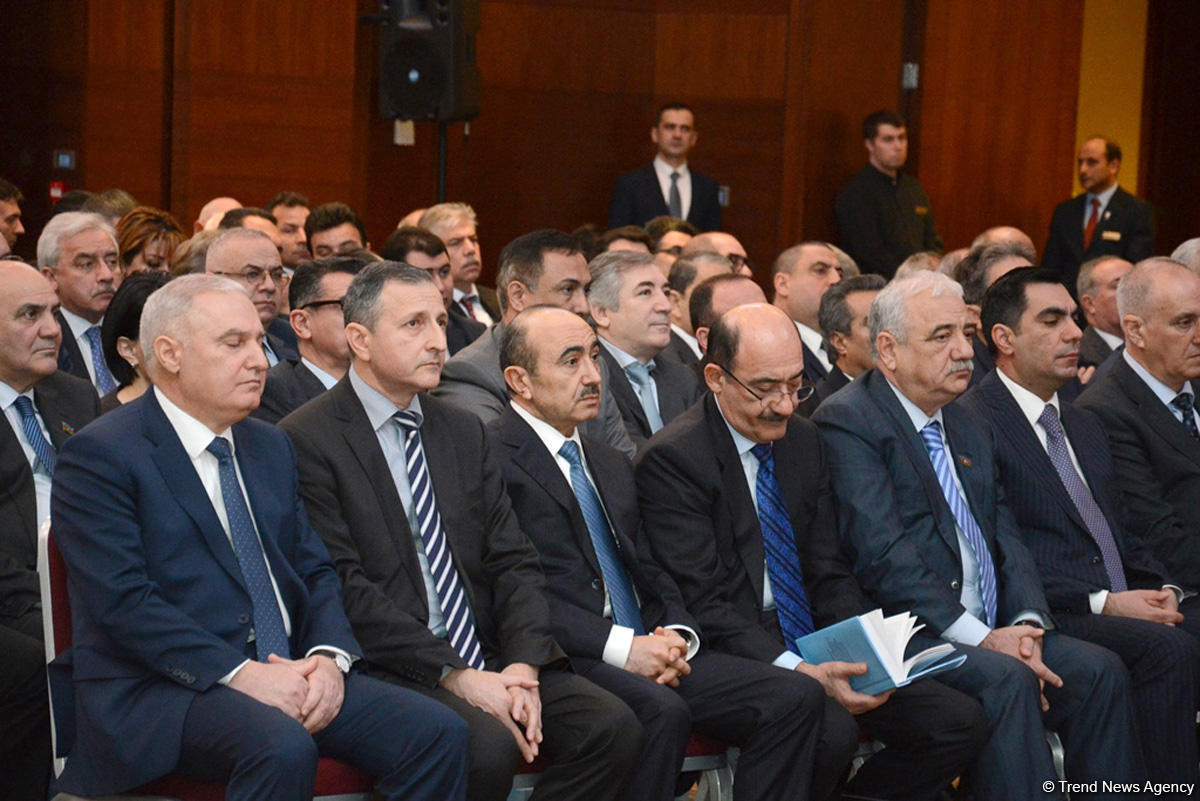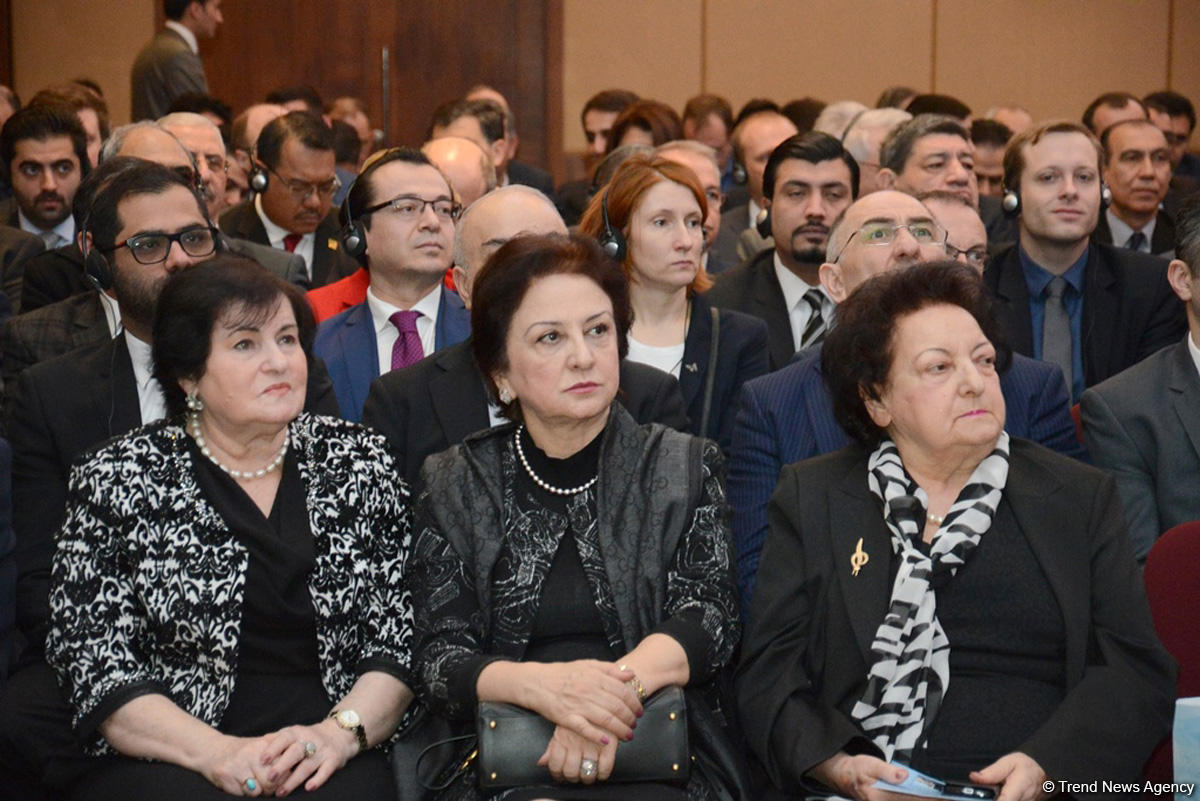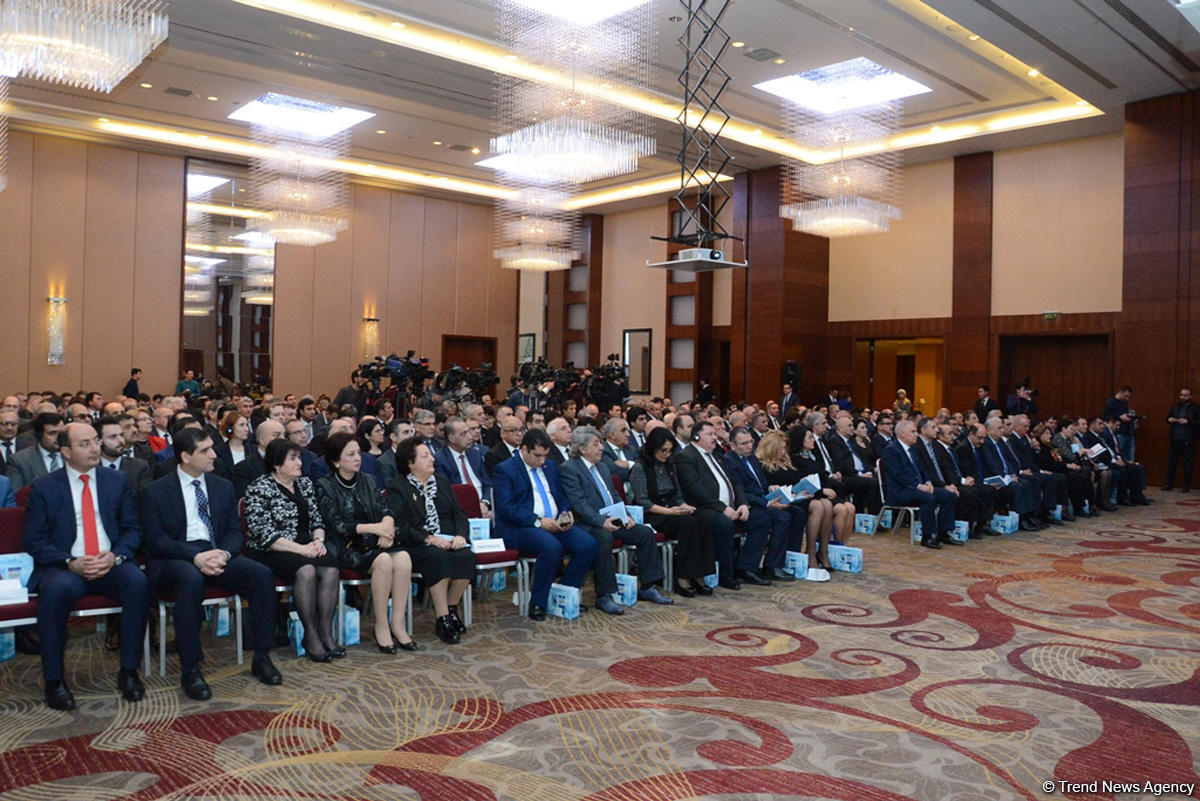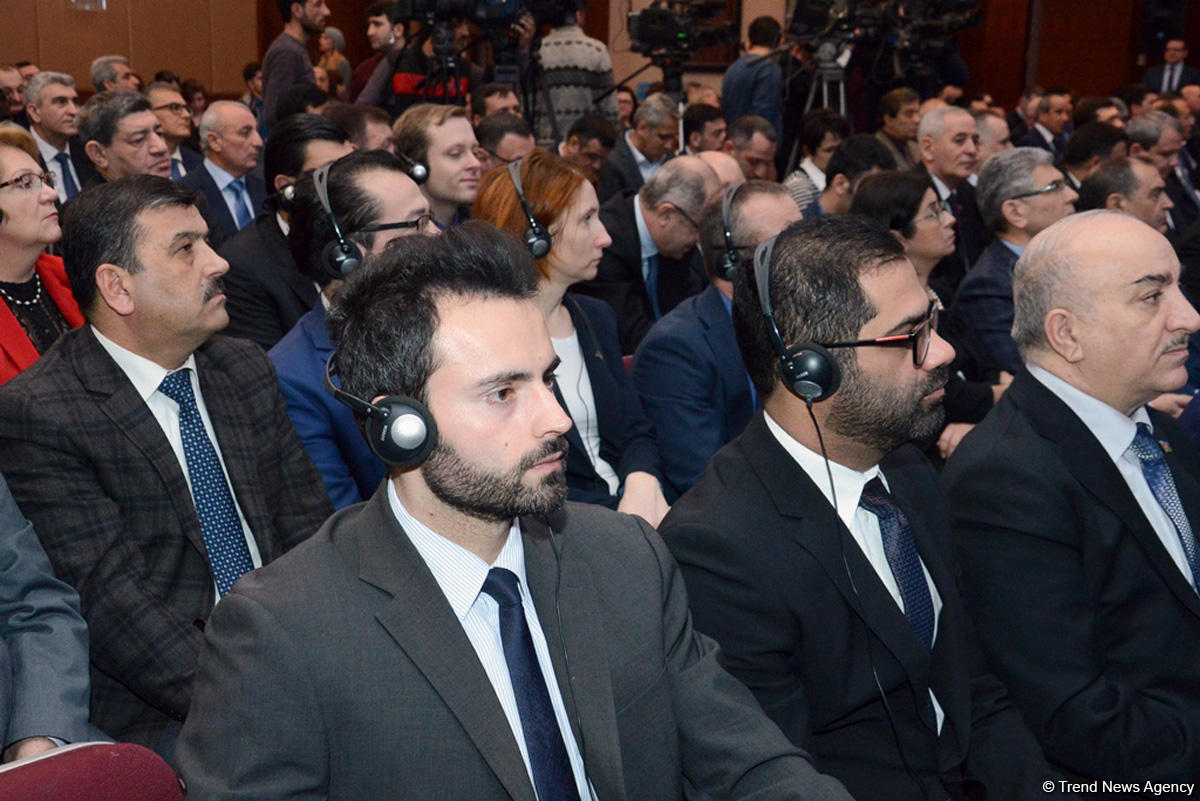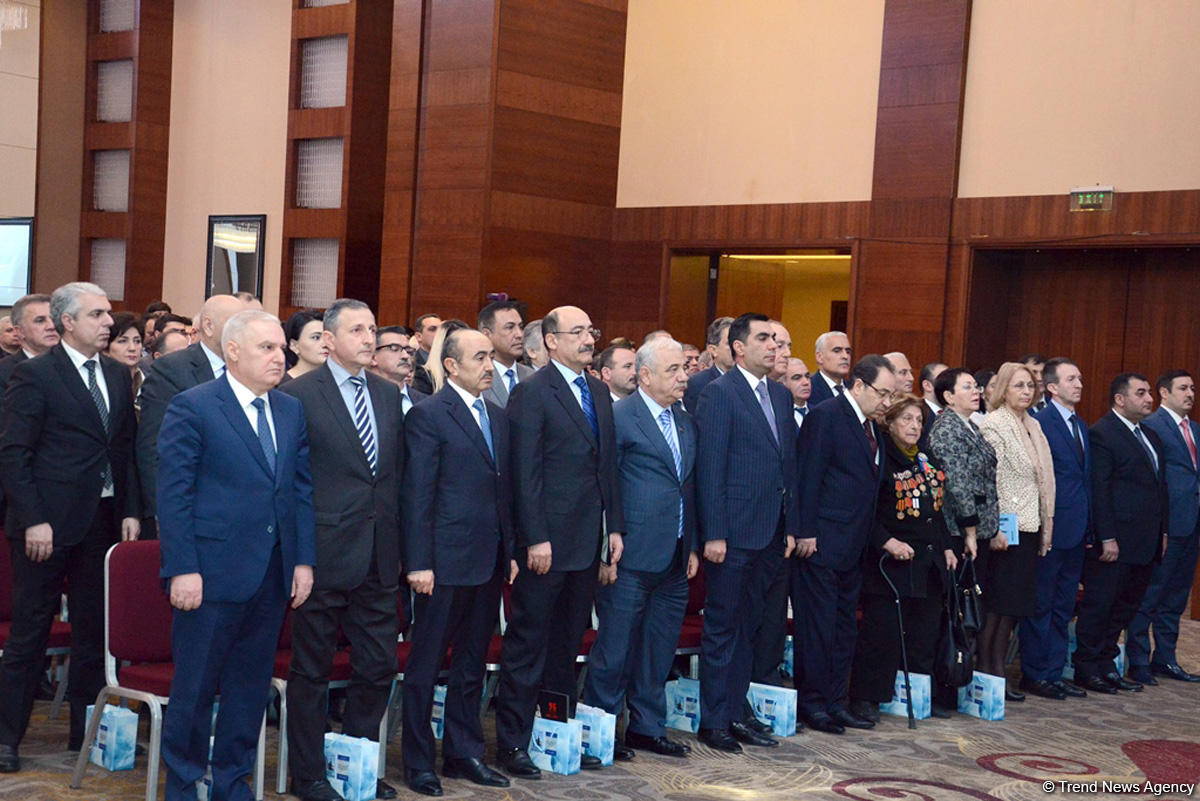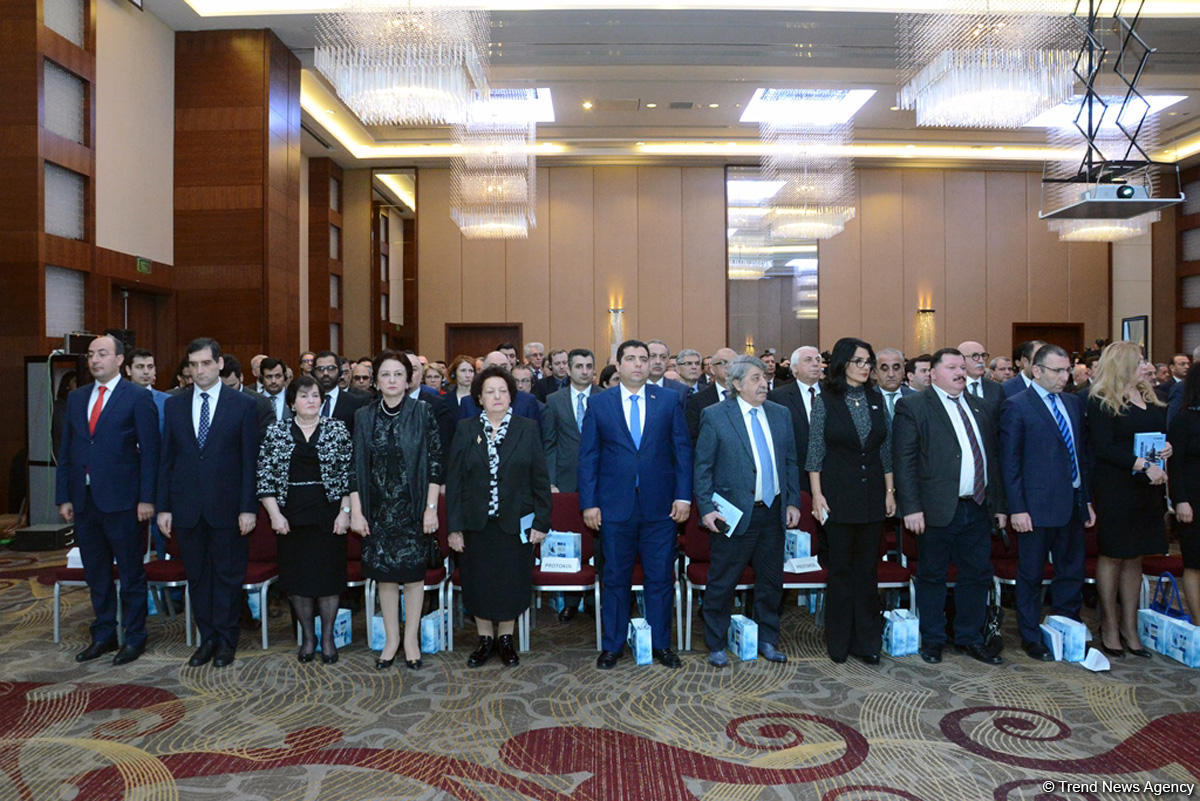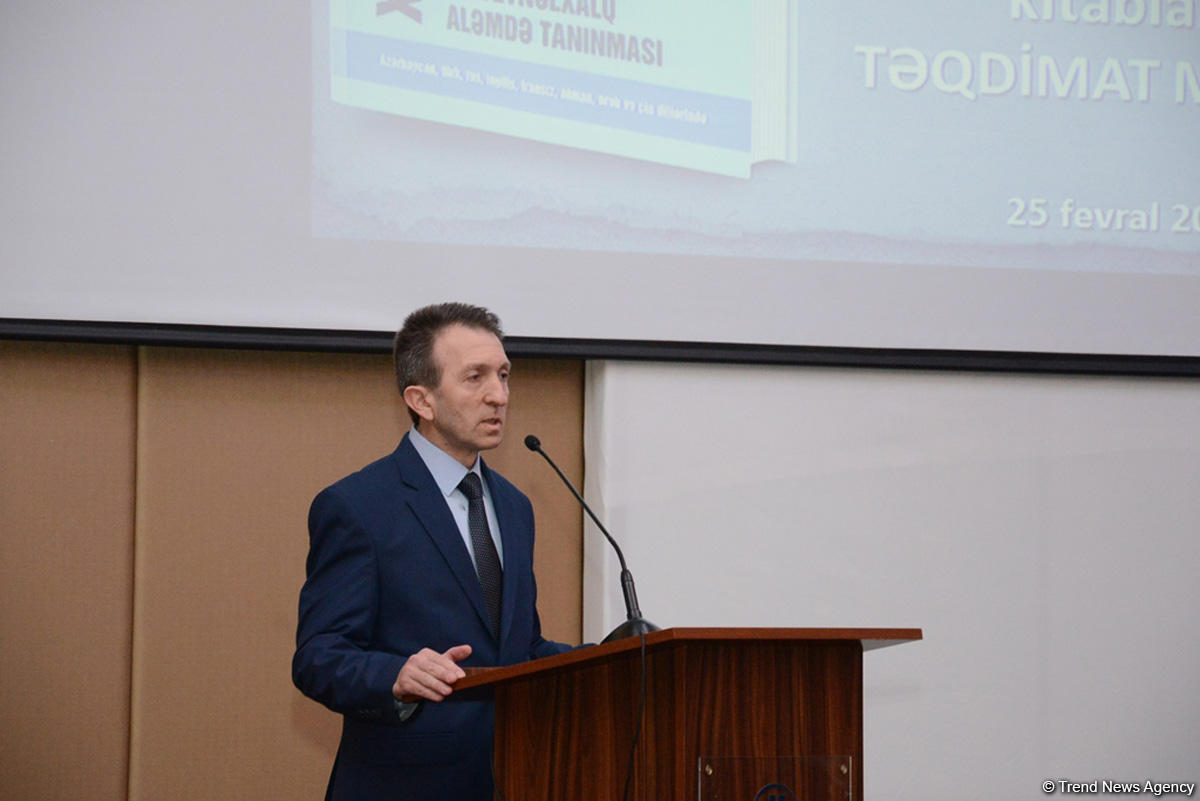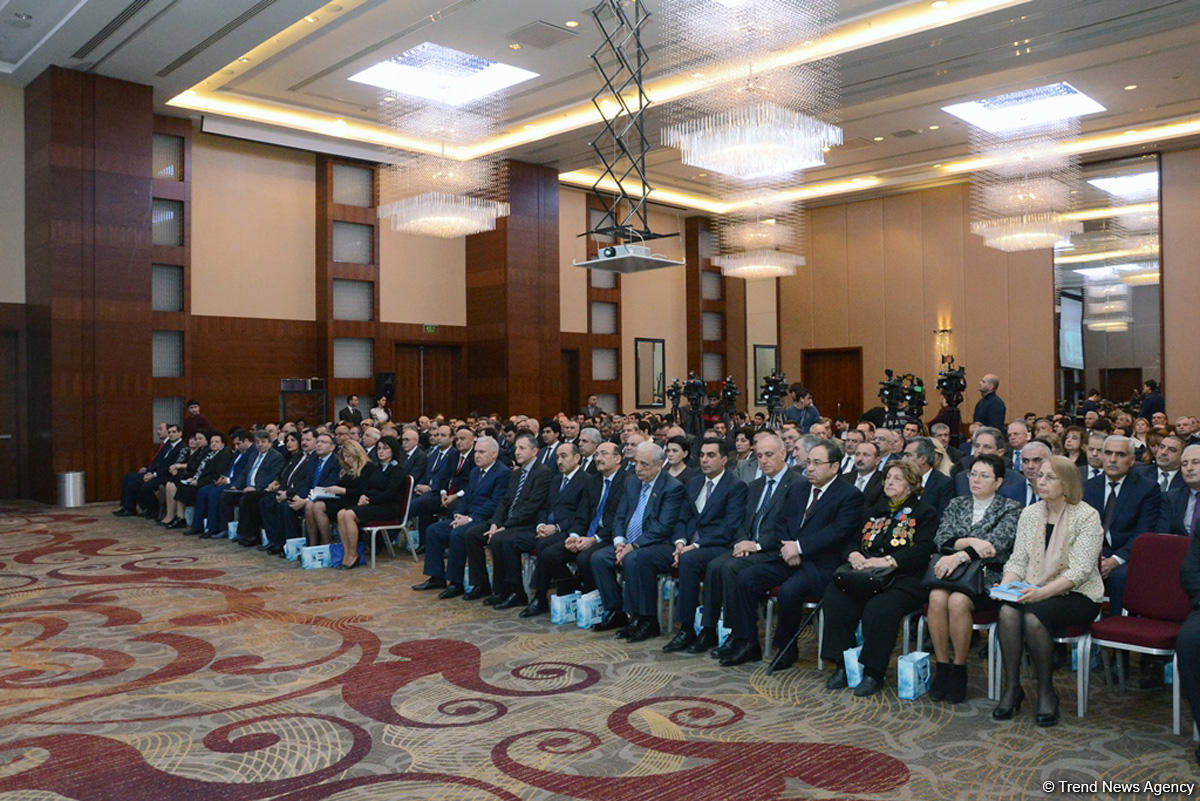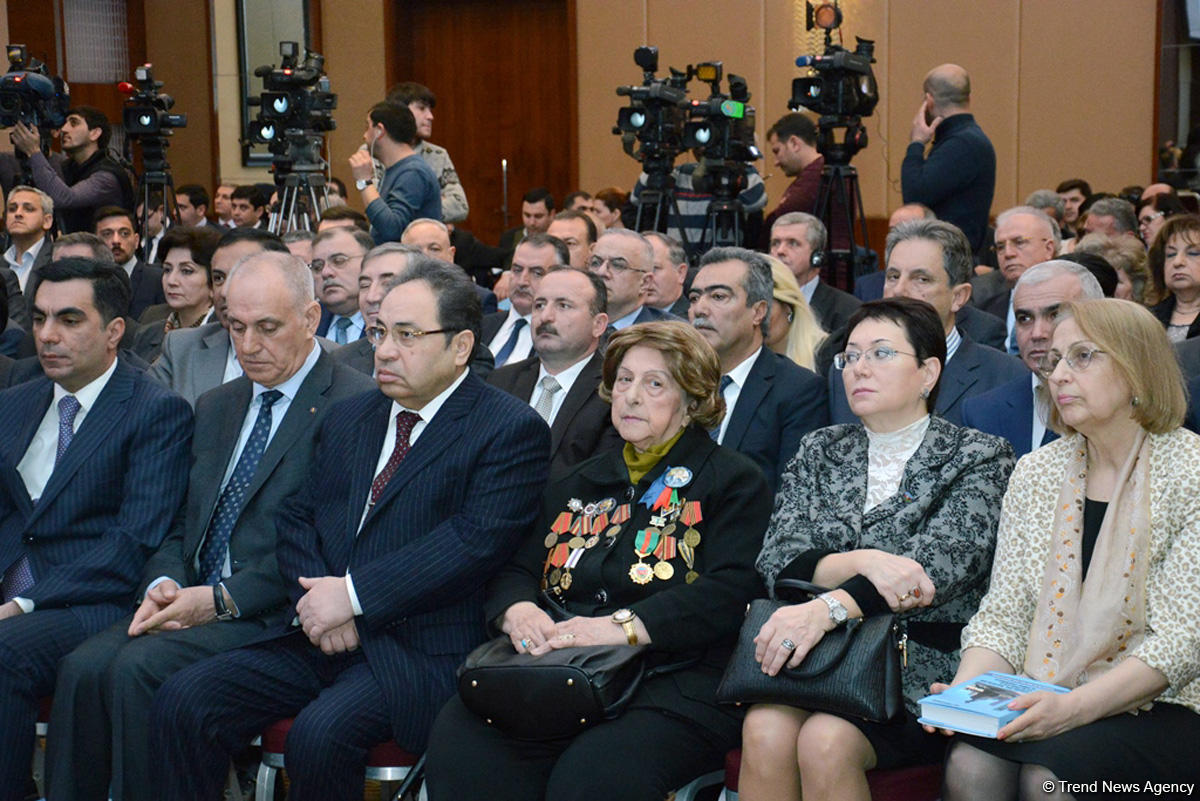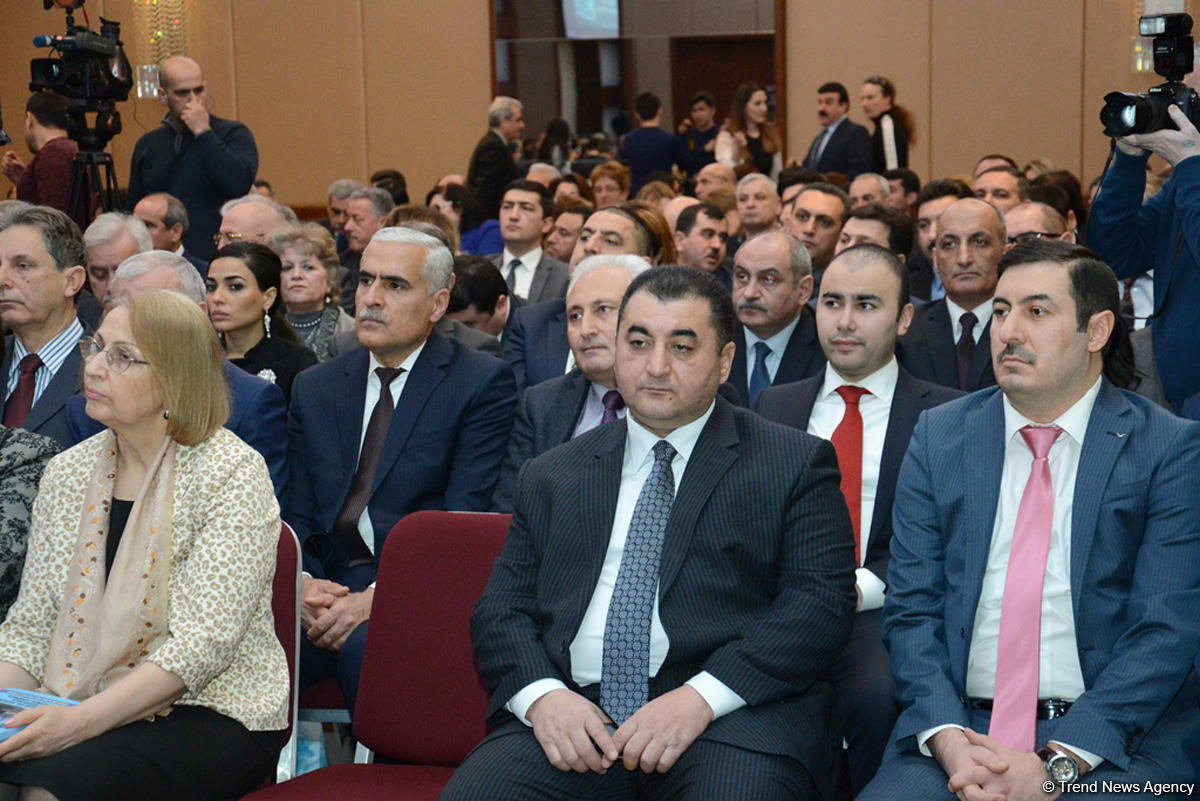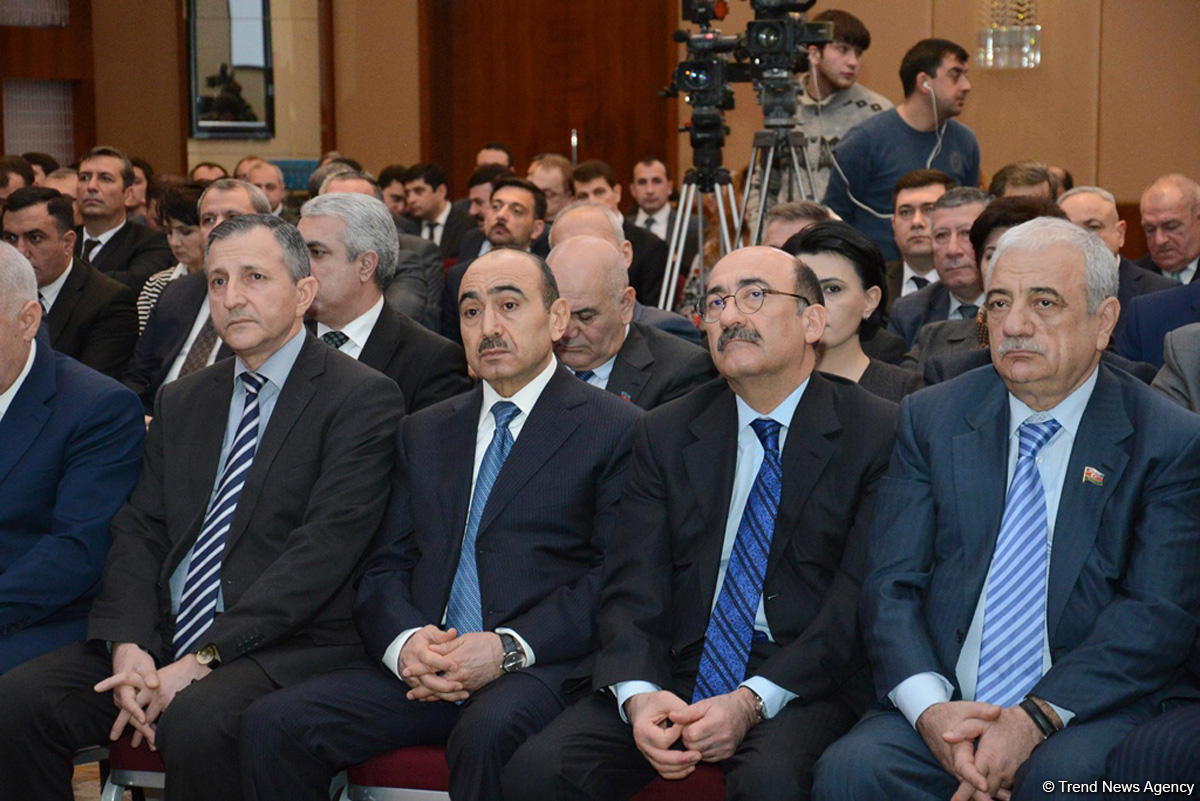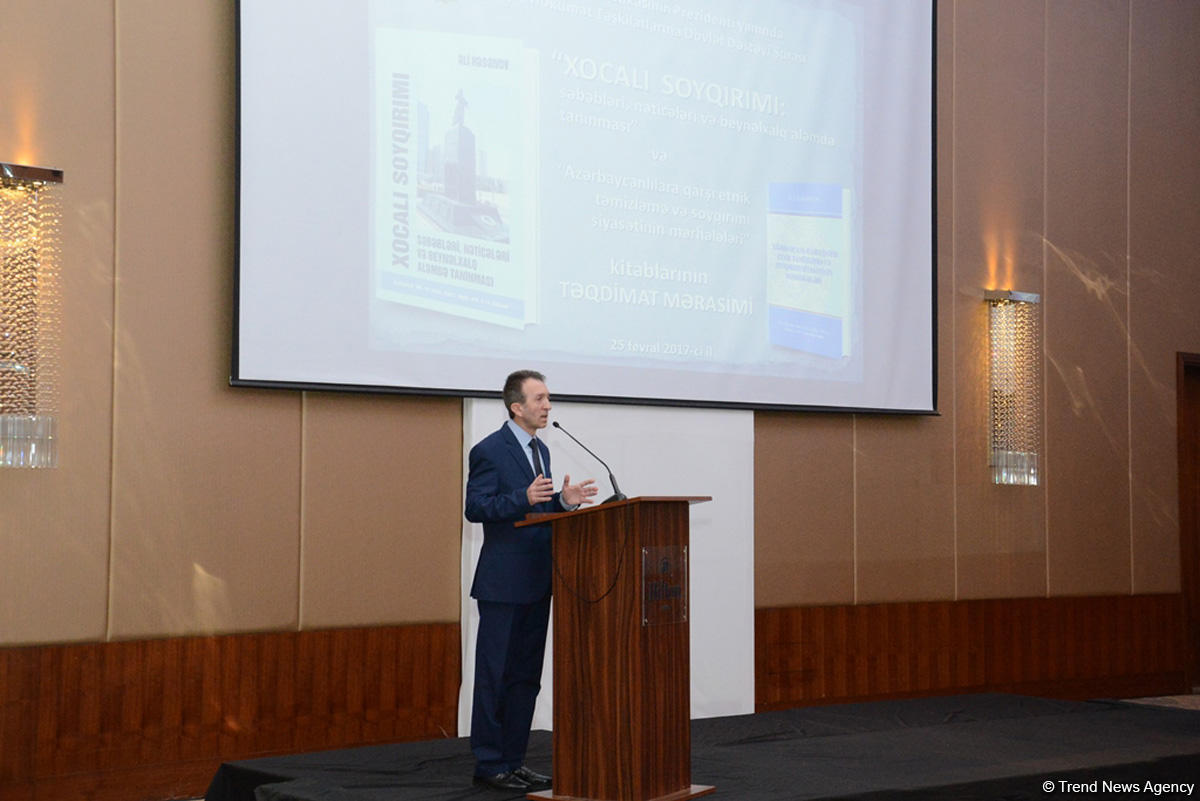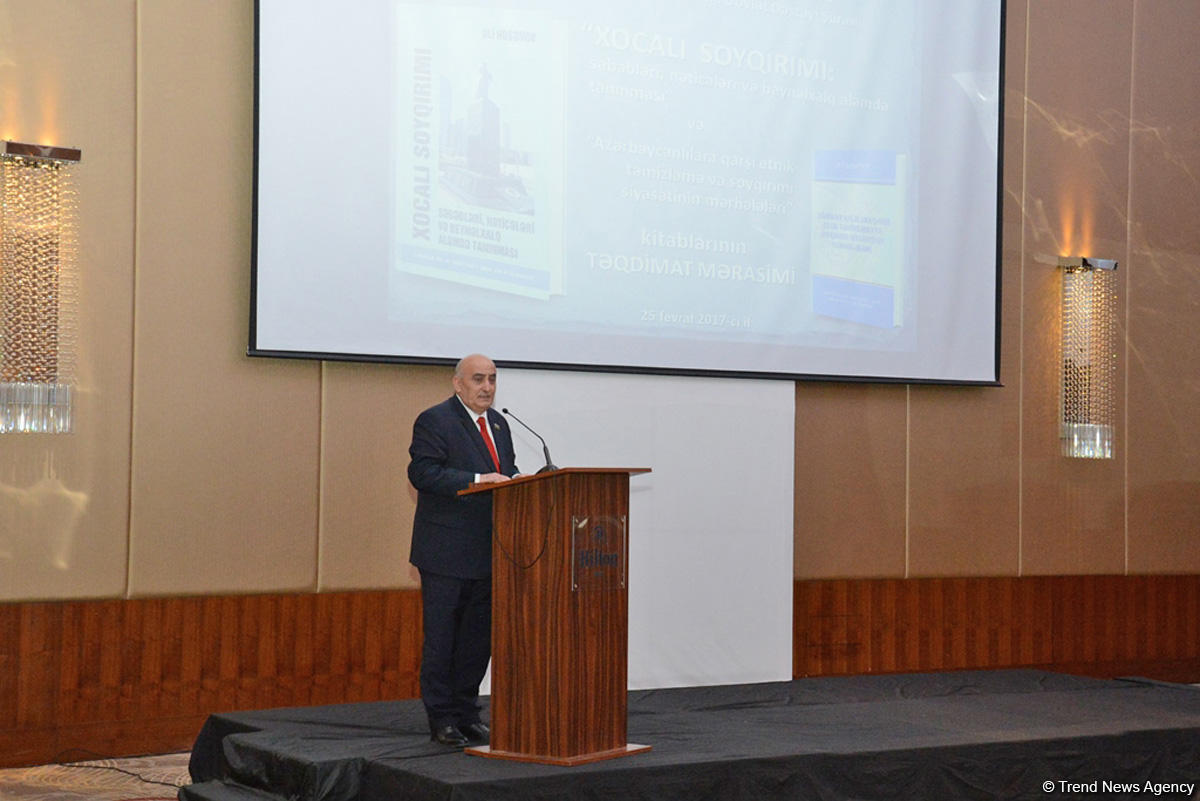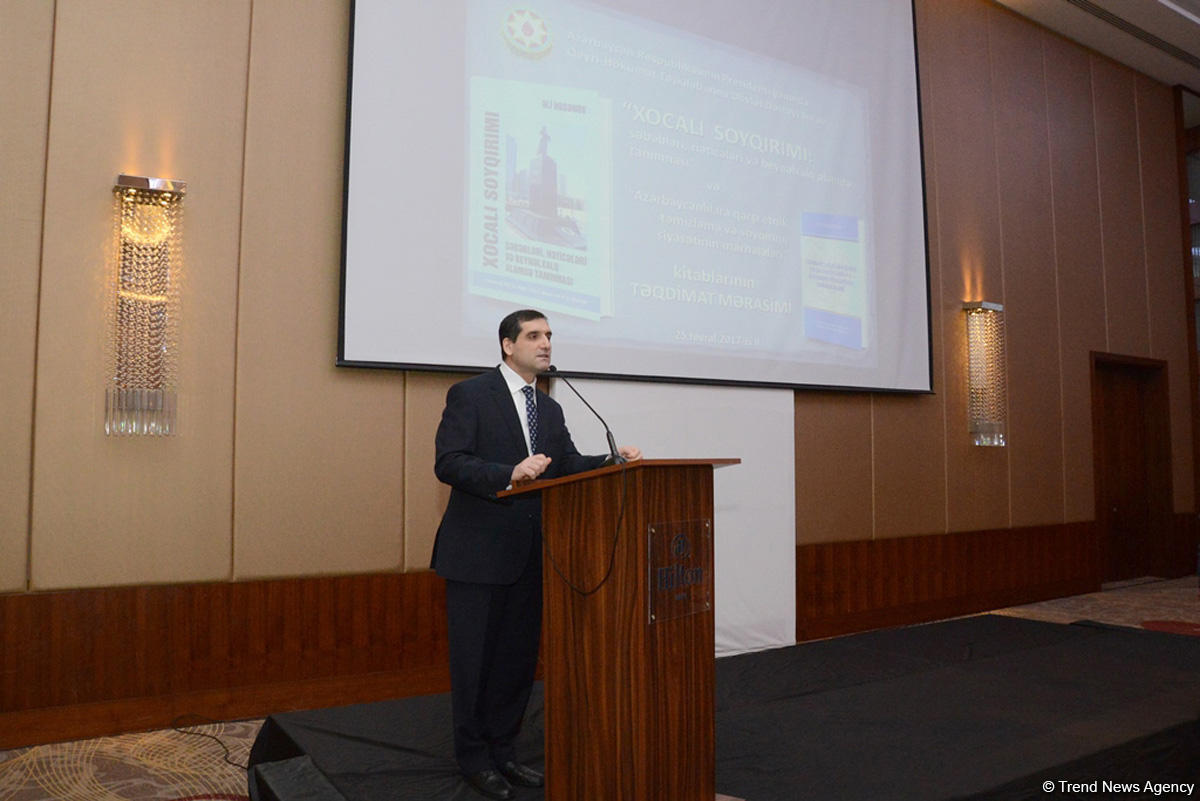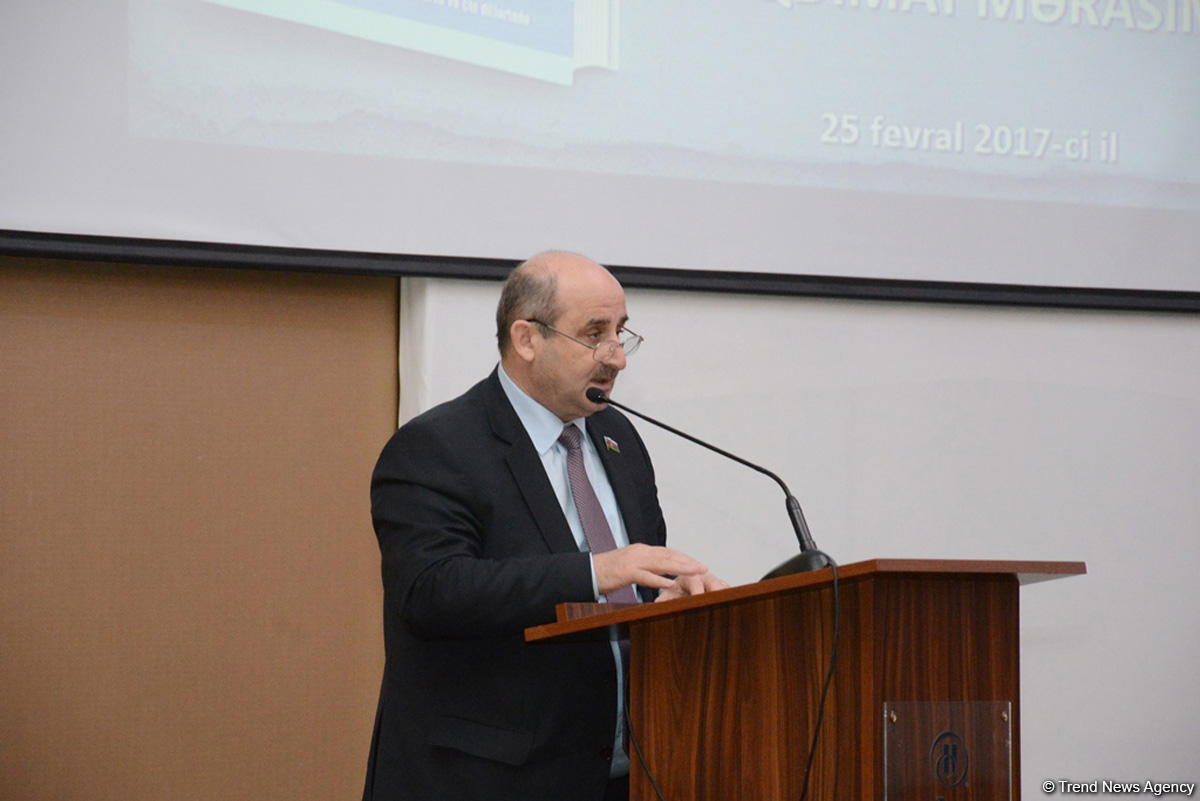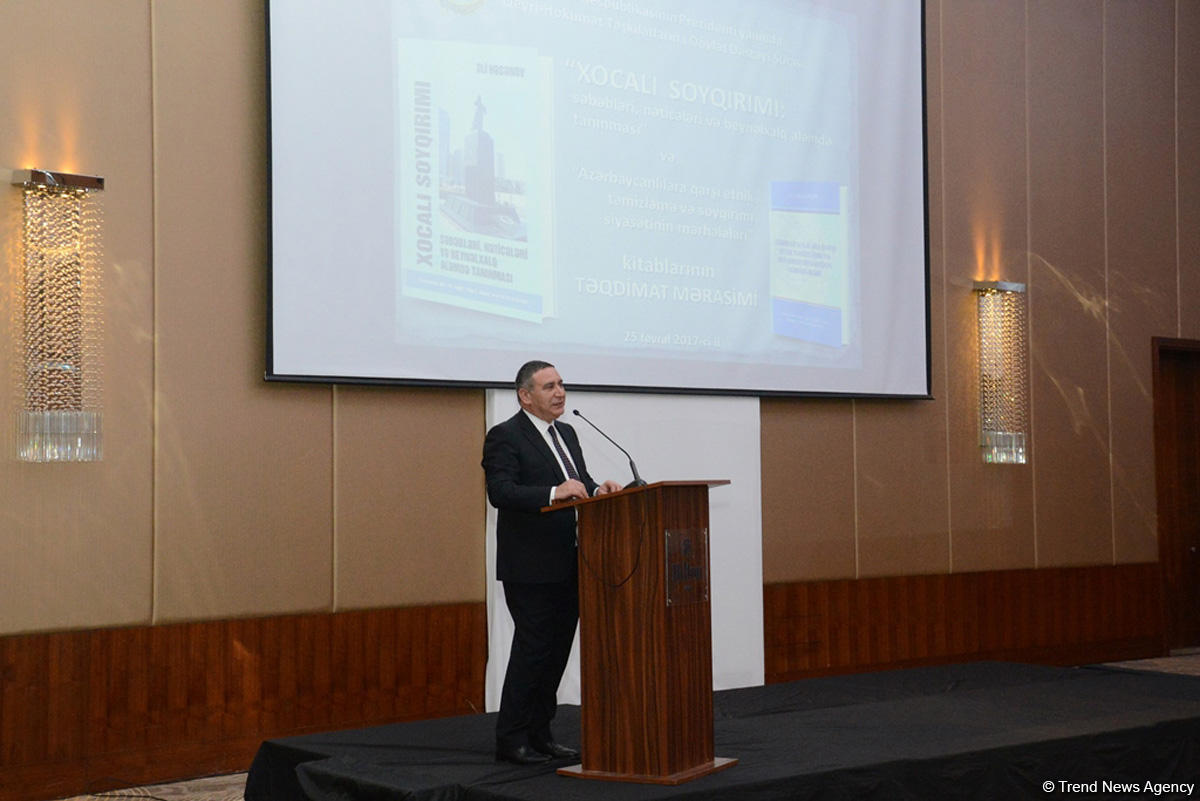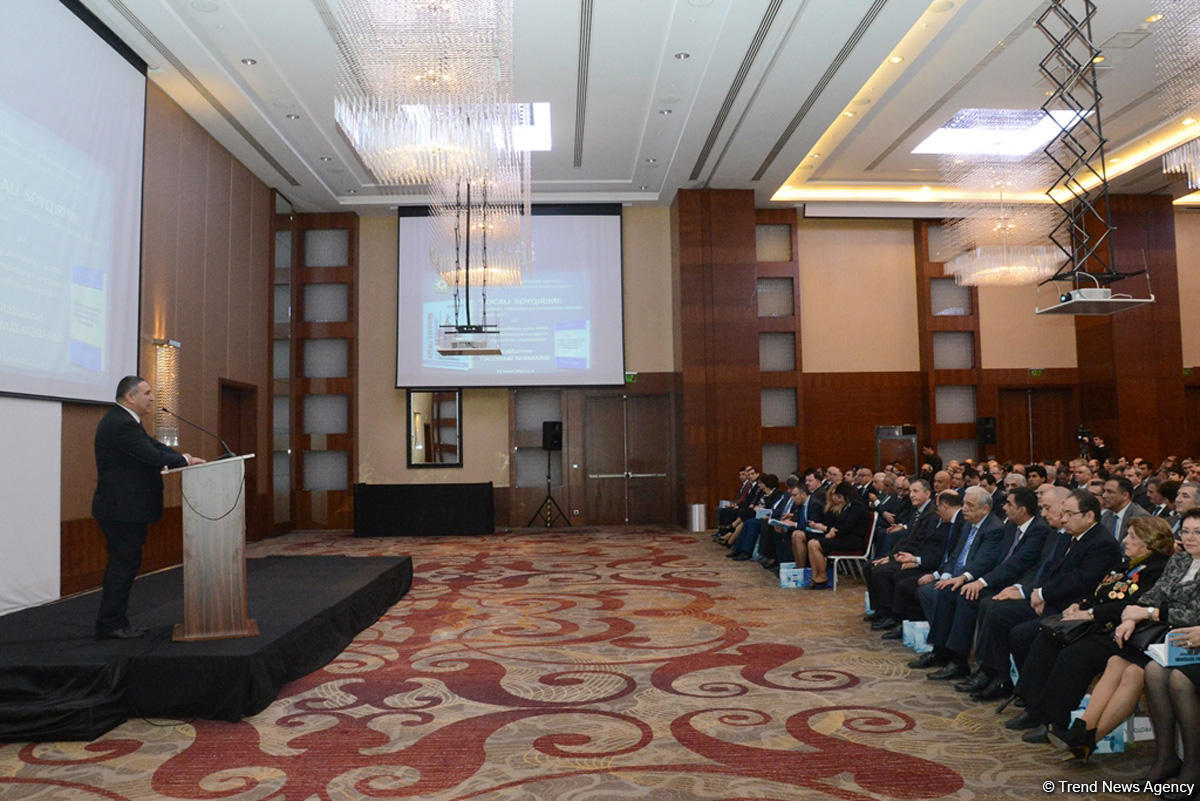Baku, Azerbaijan, Feb. 25
Trend:
Baku hosted presentation of two books dedicated to the Khojaly genocide’s 25th anniversary, titled “Khojaly genocide: causes, consequences and international recognition” and “Stages of the policy of ethnic cleansing and genocide against Azerbaijanis”.
The author of the books is Azerbaijani President’s Aide for Public and Political Affairs, Professor Ali Hasanov.
During the event, attended by government and state officials, members of the Azerbaijani parliament, well-known figures of science and culture, representatives of the media, the memory of Azerbaijan’s sons, who became martyrs for the freedom of Azerbaijani lands, was commemorated with a minute of silence.
“As you know, Head of Azerbaijani Presidential Administration Ramiz Mehdiyev has signed an action plan on marking the 25th anniversary of the Khojaly genocide,” noted Hasanov addressing the event.
He said the action plan determines the issues on studying and spreading information about the Khojaly genocide, the aims Azerbaijan wants to bring to international community’s attention and other issues.
He said each book contains articles and has 30 pages.
The presidential aide also noted that the books, which have been published in 2,000 copies, will also have electronic versions.
The most important thing is that the books don’t prompt hatred and vengeance, said Hasanov.
“The Armenian people themselves have suffered enough from the current criminal regime of Armenia, maybe they have suffered more than us and they still suffer,” added the Azerbaijani top official.
“Today, the Armenian people are the hostages and victims of that criminal regime,” noted Hasanov, adding that therefore there is a call for peace in the books.
Meanwhile, the books introduce to the world the people who committed those crimes, he said.
The books introduce these people in order to prevent their future such attempts, allow the world to know them and prevent them in time, added Hasanov.
He noted that there is a call in the books for good-neighborliness among the peoples of South Caucasus.
“At the same time, we can not forget the Khojaly genocide, the memory of innocent people killed in this massacre,” added Hasanov. “We want the whole world to be aware of the sufferings of these people and hate those who caused them.”

